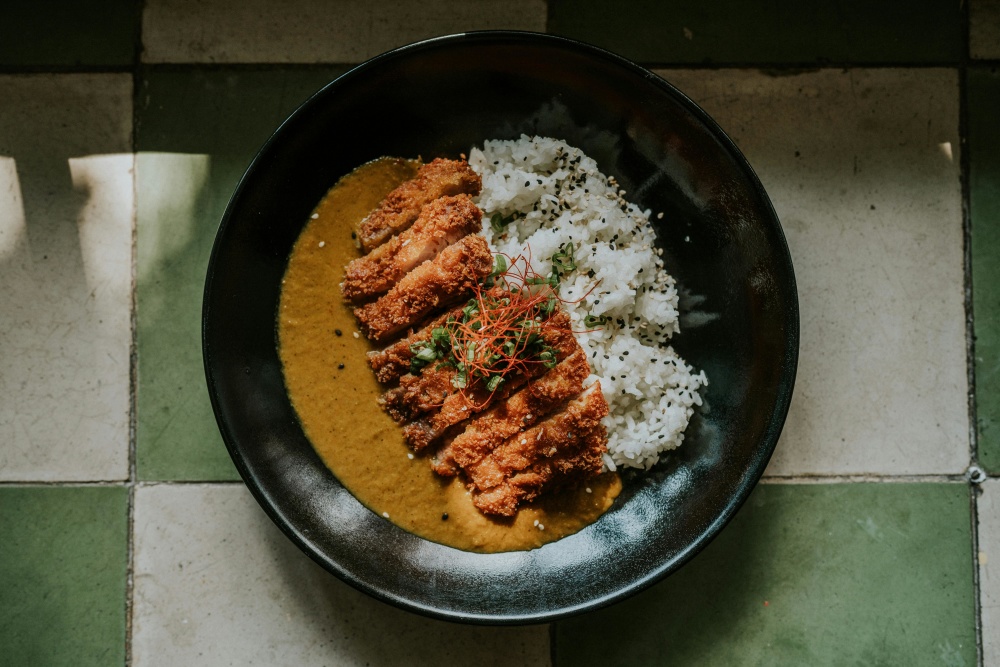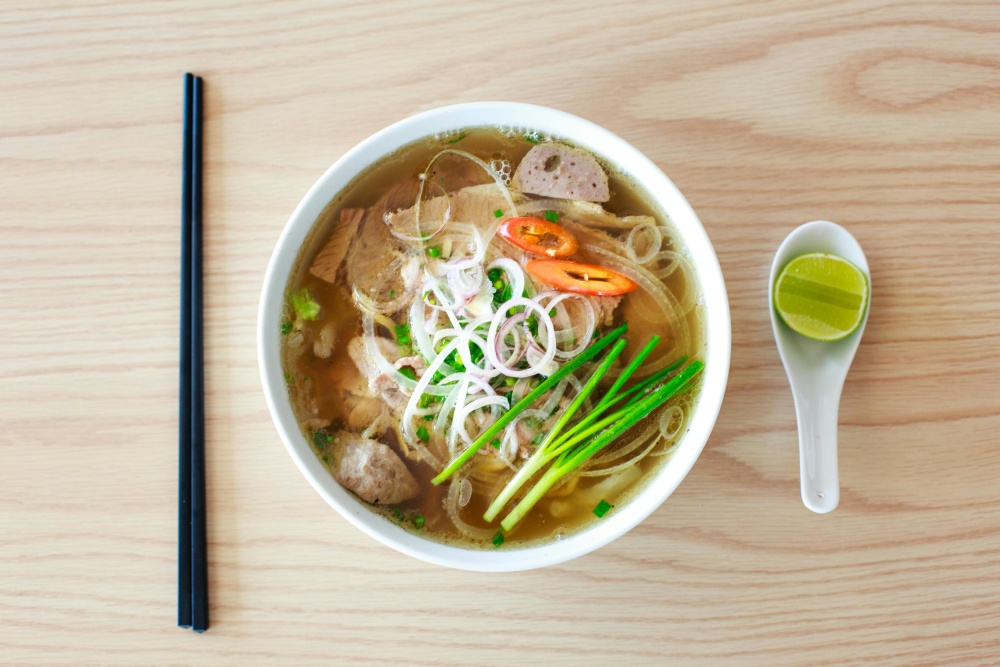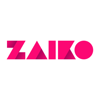Updated July 11, 2025
Your Guide To Halal Food in Japan
Japan has a distinct culinary culture that has inspired cuisines worldwide. Naturally, one of the most exciting reasons for coming to Japan as a foreigner is experiencing the unmatched food.
However, Japan may not always be accommodating when it comes to certain dietary restrictions. Especially when many ingredients that are commonly used in Japanese cuisine are prohibited by common religions practiced around the world.
For many Muslim visitors and residents, finding halal food in Japan can be tough. Some sauces and dishes contain alcohol, for instance, which makes it hard to ensure you’re eating halal at all times.
Because of this common struggle, we created a guide for halal food in Japan that’ll help you find quality halal food options near you so you can enjoy your meals with peace of mind.
I’ll also tell you where you can shop for groceries as a resident of Japan so you can cook and eat halal food in the comfort of your own home.
Let’s dive right in.
In this article: 📝
Can I Find Halal Food in Japan?
While halal food is available in Japan, there are only a small number of halal restaurants in the country. The good news is that more halal restaurants and shops are expected to open soon.
It’s not just wishful thinking – in fact, the Japan Tourism Agency is determined to make Japan more accommodating toward the growing number of Muslim visitors and residents in the country.
According to a report by Japan Times, the agency has stated that a government-funded project is launching within the fiscal year of 2024 in selected pilot zones. The plan involves issuing subsidies to implement food ingredient labels, making more halal options available, and even providing more prayer space for Muslim visitors.
As part of the agency’s efforts, special pictograms will be introduced to show food ingredients on grocery items so Muslim residents and visitors can more easily shop for food in regular markets.
Currently, many local governments like Hitoyoshi in Kumamoto Prefecture, are focusing on making halal food more widespread and accessible. The agency hopes many others will soon follow suit.
At the moment, however, outside of the major cities, your halal options are still quite limited, if not non-existent. Also, keep in mind that many restaurants still prepare Halal food in the same kitchen where they prepare the regular food, despite offering a separate “Muslim-friendly” menu.
So, what exactly does “Muslim-friendly” mean and how does it differ from being “Halal?” Let me explain this before providing some recommendations on eating halal in Japan and sharing the best halal restaurants in the country.
Learn The Difference Between “Halal” and “Muslim-Friendly”
As I mentioned, “Halal” is an official certification granted by certain bodies upon inspection of the facilities and checking whether the food preparation methods and materials used meet halal standards.
As you can imagine, not many restaurants in Japan have the actual “halal” certificate, at least, not the majority. However, there are still many “Muslim-friendly” restaurants you can go to where the ingredients are safe and they provide a kosher menu.
But before you do, keep in mind that the main difference between a halal restaurant and a Muslim-friendly one is that the latter does not have the actual halal certificate.
Even though they may not have the certificate, these restaurants do the best they can to accommodate Muslim customers’ dietary restrictions.
Eating Halal in Japan, Made Easy: Our Top Tips
Initially, eating halal in Japan may feel like an impossible task. Unless you find a restaurant that explicitly has the halal certificate or caters to halal dietary needs, you may feel like you’re out of luck. However, if you follow our tips below, you’ll find eating halal in Japan is doable.
First things first, if you don’t want to go by claims and want to check for yourself, I recommend familiarizing yourself with what a halal certification looks like.
Official organizations like the Nippon Asia Halal Association or Japan Muslim Association each issue their own certificates, and you can start by learning what these look like to instantly identify halal snacks and food items.
If you can’t be sure due to an ingredient that looks questionable, you can also use the Halal Japan app for smartphones to be absolutely certain.
Now, let's examine the distinct Japanese dishes served in restaurants and see how they can be “Halal-ified” if they aren’t already.
Can Muslims Eat Sushi in Japan?
Sushi is one of the staples of Japanese cuisine, and it refers to a whole category of food that’s prepared in many different ways using various ingredients. So, is having sushi halal?
Essentially, sushi is made with rice mixed with rice vinegar and can include a variety of fresh fish, seafood, and vegetables. So, sushi can be halal by itself, but of course, you don’t know every single ingredient and sauce that goes into a dish except for the main ones listed on menus.
As long as you stick with plain options and pick a sushi dish with fewer ingredients or go for one of the classic rolls that are the same at every place, you can be careful enough to avoid making a mistake. Of course, be sure to check that the restaurant doesn’t use Mirin when preparing the rice, which contains alcohol.
This approach can work well when you’re invited to a restaurant with your coworkers, but if you want to make sure that you’re eating halal sushi for certain, you can also try one of our recommended halal sushi restaurants below.

Japanese Curry: Can It Be Halal?
Japanese curry is another classic dish in Japanese cooking and a staple comfort food, but can it be halal?
This dish has rice as a base, with vegetables like potatoes and carrots cooked in a thick, heavenly curry roux, and meat, chicken, and tofu can also be included. So, you may think that a meatless option can be halal by itself, but I advise extreme caution here.
While curry as a spice is fine, the Japanese curry roux at most restaurants is made with animal stock or other animal products. This also applies to the curry roux mixes you buy at the store – you might find many questionable ingredients that don’t adhere to Halal standards.
So, once again, if you want to enjoy the delicious Japanese curry with peace of mind, I recommend going with our halal Japanese curry restaurant recommendation below.
Can Ramen Be Halal?
When in Japan, you want to taste the best ramen there is, and who can blame you? This hearty noodle soup dish nourishes the body and the soul, so you don’t want to miss out on it.
Ramen can be prepared in many ways, with different types of meat and seafood. So, it can, in theory, be prepared in a Halal way, but you’ll definitely want to avoid Tonkotsu ramen, which is made out of pork bone broth.
As long as you can see the ingredients and go for a meat-free option, you should be fine. However, if you’re in a big city like Tokyo, you don’t have to risk it. Our recommendations below also include some neat Halal ramen spots you can go to eat ramen in peace. In fact, let’s start our recommendations with just that.
Halal Restaurants in Tokyo
Here are our top halal-certified restaurant recommendations, starting with a great ramen place in Tokyo.
Halal Ramen Honolu in Shibuya: The Best Halal Ramen in Tokyo
This ramen shop, located in the heart of the city, serves great halal Japanese food. As is the case with many halal places, it also offers vegetarian and vegan options.
This is a part of the Honolu Ramen chain of restaurants, and while nearly all of their chains offer “Muslim-friendly” menus, the one in Ebisu offers a completely halal menu.
The specialty here is a super creamy and rich chicken broth served with seaweed, a boiled egg with a gooey center, and handmade noodles, but that’s not all. The restaurant has many options to try, and they also serve Takoyaki and Sukiyaki in the evening.
Asakusa Sushi-ken: Best Halal Sushi Restaurant in Tokyo
If you’re wondering which restaurant kicked off the Halal movement in Japan, meet Asakusa Sushi-ken. This place is the first restaurant to obtain the halal certificate in the country’s capital city, and it happens to make great sushi in addition to being all halal.
In addition to sushi, you can find all sorts of halal dishes here, so it’s a great all-rounder choice for large friend groups as well. The restaurant is located in the Taito ward, and they’re open every day of the week except for Wednesdays.
Halal Food Osaka: Best Restaurants
Being one of the largest cities in Japan, and one with a pretty great tech scene, might I add, Osaka also has a good selection of halal restaurants, so let’s take a look.

Halal Ramen Honolu Osaka Namba: Best Halal Ramen in Osaka
You may be familiar with Honolu Ramen, as I mentioned their Tokyo location above. This is another one of the chain restaurant’s locations that has a completely Halal menu, so you’re in good hands here.
The restaurant staff speaks English, which is another good reason to visit if you’re a foreigner. The food speaks for itself, but let’s just say that you won’t be disappointed. Located in Naniwa ward, the place is open every day of the week with separate lunch and dinner menus.
Asian Diner 585 Namba: Extensive Halal Menu in Osaka
A much more versatile option, Asian Diner 585 Namba is another Halal-certified authentic Japanese restaurant in Osaka. The restaurant boasts that it serves the only halal-certified Wagyu beef in the Kansai region.
That said, the menu goes beyond meat and steaks, as you’ll find all sorts of Japanese dishes made halal here. Asian Diner 585 Namba is located in the Naniwa ward and serves a lunch and dinner menu. Make a reservation on the website if you can, as the place can sometimes be quite crowded.
Halal Food Kyoto: Our Picks
Another metropolis in the Kansai region, Japan’s history-filled old capital, Kyoto, is also a great place to be if you’re looking for halal food options. Let’s check out some of the best restaurants you can visit today.
RANTEI (Kyoto Century Hotel): Japanese Halal Fine Dining
Located in the Kyoto Century Hotel in the Himogyo ward, RANTEI offers traditional Kyoto cuisine in an elegant setting.
Not only is the restaurant Halal-certified, but it also offers English language support, which makes it a great choice for visitors and foreign Muslim residents living in Kyoto. It’s located in the Himogyo ward, and making a reservation in advance on the hotel’s website is recommended.
Honolu Premier Kyoto Gion: Best Halal Ramen in Kyoto
By now, you probably know that you can’t go wrong with Honolu if you’re looking for good halal ramen. Honolu Premier Kyoto Gion is the restaurant chain's Kyoto location, which is also fully Halal-certified.
While you definitely want to try the white ramen here, I also recommend the customer-favorite chicken soup, which the restaurant makes a fresh batch of every morning. As a foreigner, you’ll be glad to know the place also has English support. Honolu Premier Kyoto Gion is located in the city’s Shimogyo ward.
Resources for Halal Food: Where To Buy The Best Halal Food in Japan

The restaurant options and my tips above may be helpful, but you also need your own resources if you’re serious about maintaining a halal diet in Japan.
So, as I conclude this guide, I’d like to mention some great online resources to help you find good halal food wherever you go in Japan.
For starters, you have Japan Muslim Guide, a website dedicated to finding halal food, accommodation, and prayer facilities for Muslims. Restaurants and cafes featured here all have descriptive logos, which makes sorting through the ones with halal certificates and those that serve alcohol easy.
Japan’s National Tourist Organization also has a similar website called “Muslim Travelers’ Guide”, where you can find shops and stores that sell halal groceries. There’s a handy map you can choose your location on, which instantly shows everything Halal in your city.
Finally, Halal Food in Japan is another great resource for finding halal food and grocery stores in Japan. You can even find nearby mosques on this site.
As you can see, as long as you’re living in one of the bigger cities, you’ll easily find good food options and Halal grocery stores using the resources above.
While this is it for this post, if you want to learn more about Japanese food, head over to my post where I explain different types of Japanese noodles in detail.
Get Job Alerts
Sign up for our newsletter to get hand-picked tech jobs in Japan – straight to your inbox.









